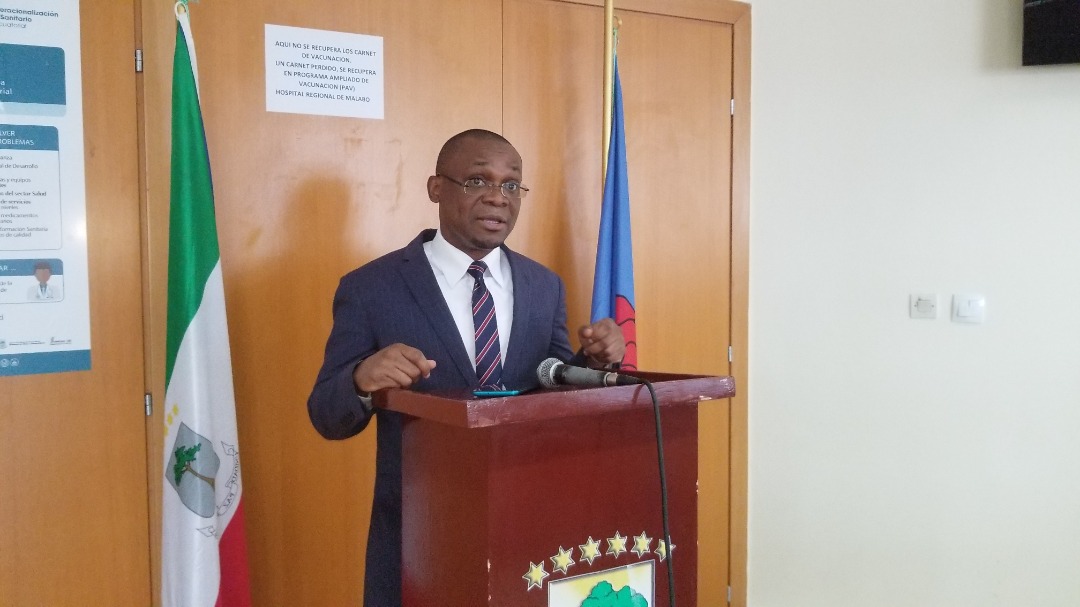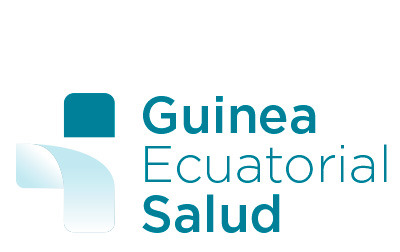
03 Jun Minsabs offers a press conference to present a report issued by the WHO on the crisis of schoolchildren in Bata generated after the administration of the tetanus vaccine
 On May 18 and 19 of this year, 102 girls with symptoms of dizziness, agitation, weakness, headaches, respiratory distress and pain in the left arm, from 11 centers, were received at the Bata Regional Hospital.
On May 18 and 19 of this year, 102 girls with symptoms of dizziness, agitation, weakness, headaches, respiratory distress and pain in the left arm, from 11 centers, were received at the Bata Regional Hospital.
Importance of tetanus vaccination
According to WHO and UNICEF recommendations, it is necessary to protect future mothers, adolescents and young people in their preconception period, to strengthen their immunity against this disease and guarantee the protective immunity that it allows;
Accessible Immunization Health Policy since 1986.
In Equatorial Guinea, the Government created the expanded vaccination program (PAV) in 1986, and in the same year the tetanus vaccine was introduced in the school vaccination schedule. “This fact coincided with the application of the tetanus/diphtheria vaccine as a consequence of the launch of a campaign on the occasion of the African Vaccination Week (SAV), which was socially and erroneously related to vaccination. Subsequently, the woman transfers these acquired defenses to the fetus, thus avoiding neonatal tetanus from a viewpoint of efficacy in public health, the immunization process that is carried out in an accessible and free manner in our country must continue. aimed at pregnant women and women of childbearing age. Before the introduction of this vaccine, the country had high rates of deaths from this cause, and it is from this date that different routine vaccination strategies are implemented to increase immunity to mothers and decrease the rate of deaths. by this disease, until reaching its elimination and a better quality of life for our puerperal women and children.
Equatorial Guinea, Tetanus Free Country
Despite having obtained the international status of a country that has eliminated tetanus, we must continue with the recommendations of the WHO and UNICEF, which continue to advise systematizing the development of effective interventions that make it possible to maintain this important condition.
Actions carried out by the Ministry of Health and Social Welfare in response to this incident
Creation of a multidisciplinary team 4. The list of places led by the Hon. Vaccination Vice Minister, as well as the training of Health and Social Welfare. The team of expert teams that were deployed was made up of professionals from schools, health centers and technicians and managers, to guarantee the hospital to interview patients and comprehensiveness in the evaluation and solution to complete the notification of the case. to the emergency. In its composition this 5. Multiple Interventions were carried out team had the presence of psychological court, for the General Directors, Sensitization Directors, in the following National Centers, Internal Medicine, Educational: INES Njong Melen, MadreEpidemiologists, Psychologists, Psychiatrists, Catalina 1 , Mother Catalina 2, Father Pediatricians etc. Sialo, Nana Mangue Complex, School
The Nail Santa Cruz services, the Sacred College of diagnostic means of the Corazón de Jesús Hospital, the Bata Regional Private College as a laboratory, and Madre Juaquina, La Salle College of imaging, as well as the medication Lea, Modesto Gené Polytechnic Institute necessary for Roig way.
Request and arrival of a team of 6. The expert analysis and processing of the WHO office qualitative and quantitative of the regional data was carried out, for the evaluation and vaccination support, the patient’s history and the technicians to investigate the facts, clinical and paraclinical data of the through the MAPI methodology: results obtained in the interviews and (UNWANTED MANIFESTATION the application of the MAPI form. AFTER IMMUNIZATION)
After the request made by Ecxmo. Vice Minister of Health and Social Welfare, Dr. Edinam AGBENU, Head of the Department of Safety and Quality of Vaccines and Focal Point for the countries of West and Central Africa, arrived in the country to respond to the emergency. WHO Regional Office and Dr. Patricia TANFUM, Focal Point for the Elimination of Neonatal Tetanus for the countries of Central Africa. The WHO Regional Office, for the development of the actions, the MAPI methodology, standardized at the international level, was used in a period of 5 days.
The work sessions were divided into: Initial Evaluation Phase, Training for research teams, application of the MAPI form, and analysis and processing of the following results:
All patients were treated promptly and no deaths from this cause were recorded.
No causal evidence was identified linking the event to an adverse reaction to the vaccine.
The investigation was carried out in 237 cases, including 136 additional cases which had not attended the hospital, but had received the vaccine and also filled out the notification form, with the aim of increasing the study sample, for better precision. From the results.
This type of reaction (collective anxiety) is not described in the scientific literature, nor in any country in the world that uses this vaccine.
No evidence was found that justifies a quality problem, it is a vaccine that has been used since 1986 in the country, and this batch has been applied since 2000, and no history of this type has been recorded over time.
recorded over time.
To date, 7,000 people have been vaccinated in the 18 health districts and similarly, no adverse reactions have been recorded in this regard.
In the investigations carried out, no evidence of human error or poor handling technique of the vaccine was found.
Sufficient clinical evidence was found to attribute the events to a massive psychological illness (Collective Hysteria or as it is also known Massive Psychogenic Illness.

